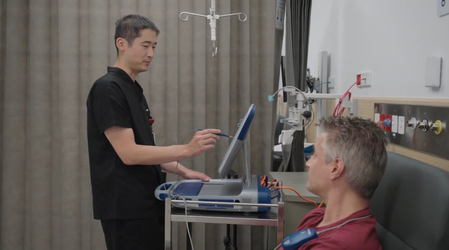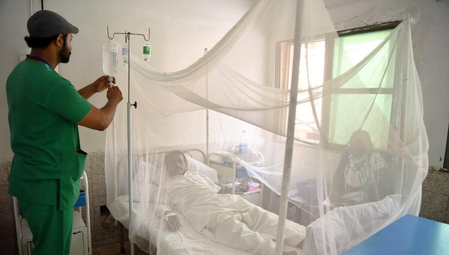
Melbourne, Nov 10 (IANS) Researchers in Australia have led a first-in-human trial for a breakthrough gene-editing therapy that halves bad cholesterol and triglycerides in people with difficult-to-treat lipid disorders.
The trial tested CTX310, a one-time CRISPR-Cas9 gene-editing therapy that uses fat-based particles to carry CRISPR editing tools into the liver, switching off the ANGPTL3 gene. Turning off this gene lowers LDL (bad) cholesterol and triglycerides, two blood fats linked to heart disease, according to a statement released Monday by Australia’s Monash University.
The Victorian Heart Hospital, operated by Monash Health in partnership with Monash University, treated three of 15 patients aged 18-75 years with difficult-to-treat lipid disorders in phase 1 of the global trial conducted across Australia, New Zealand, and Britain, the statement said, Xinhua news agency reported.
At the highest dose, a single-course treatment with CTX310 resulted in a mean reduction of LDL cholesterol by 50 per cent and triglycerides by 55 per cent, remaining low for at least 60 days after two weeks of treatment, it said, adding LDL cholesterol and triglycerides were reduced by nearly 60 per cent among all participants with various doses, with only mild, short-term side effects reported.
Importantly, CTX310 is the first therapy to achieve large reductions in both LDL cholesterol and triglycerides at the same time, marking a potential breakthrough for people with mixed lipid disorders who have elevations in both, according to the trial published in the New England Journal of Medicine.
“The possibility of a single-course treatment with lasting effects could be a major step in how we prevent heart disease,” said Stephen Nicholls, Director of the Victorian Heart Hospital, and study lead investigator.
“It makes treatment easier, reduces ongoing costs, relieves pressure on the health system, all while improving a person’s quality of life,” Nicholls said, emphasising plans to focus on larger and more diverse patient populations in future trials of CTX310.
–IANS
/as




